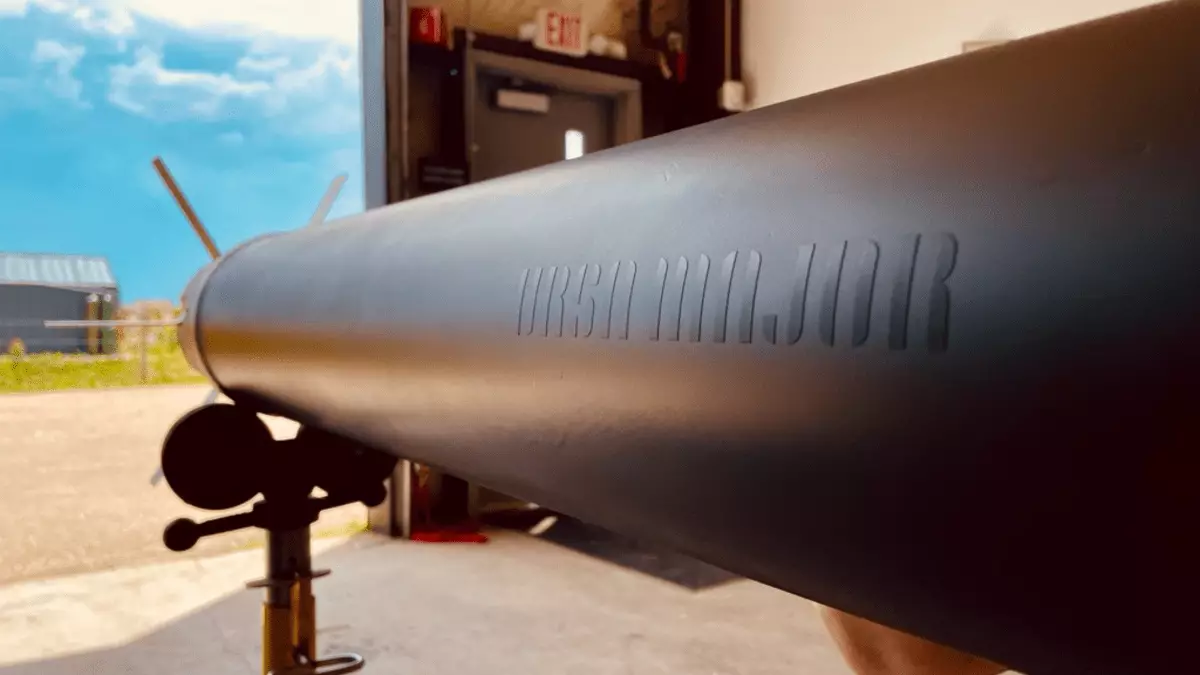In a significant move for the defense technology sector, Ursa Major, a pioneering startup specializing in 3D-printed rocket motors, has secured a $12.5 million contract from the Department of Defense’s Office of Strategic Capital (OSC) in partnership with the U.S. Navy. This investment signals a collective effort of $25 million, with Ursa Major committing an equivalent amount to bolster their research and development endeavors focused on new solid fuel rocket engines. This financial injection is not only a substantial milestone for the burgeoning company but also highlights the OSC’s inaugural public funding initiative, which has faced considerable delays and bureaucratic hurdles since its inception in 2022.
The OSC was established to stimulate private investment within the defense sector, but its ambitious budget proposal of $144 million has been significantly hampered by legislative challenges. Ursa Major’s contract exemplifies the potential for a shift in this landscape, demonstrating how government funding can catalyze innovations that the military desperately needs, especially due to heightened global tensions that have strained existing supplies of military-grade rocket motors.
With the ongoing conflict in Ukraine stretching U.S. military resources thin, the advancement of new solid rocket motor production capabilities is urgent. Currently, only a limited number of defense contractors can meet this demand, which places a heavy burden on the supply chain. Bill Murray, Ursa Major’s Chief Product Officer, emphasized this pressing issue, outlining that traditional manufacturers could take from five to 18 years to replace current stock, largely due to reliance on outdated production methods. Thus, the innovative solutions proposed by Ursa Major can play a crucial role in alleviating this supply constraint.
Moreover, Ursa Major’s use of 3D printing technology allows for significant reductions in production time. While conventional manufacturing processes can stretch over a year, Ursa Major can produce rocket motor components in under a month. This efficiency stems from the capability to create complex parts as single solid entities rather than numerous components that require tedious assembly. This transformative approach not only enhances productivity but also reduces potential points of failure, which is a critical factor in defense applications.
Founded in 2015, Ursa Major has already established itself as a formidable player in the aerospace industry, having previously secured contracts from agencies such as the U.S. Air Force Research Laboratory. Their current endeavor in developing hypersonic launch engines further demonstrates the company’s commitment to spearheading advancements in rocketry. Murray’s assertion that this investment reflects a military commitment to fostering innovative technologies captures the essence of the growing recognition of the need for modernization and diversification in defense manufacturing.
Ursa Major’s recent contract with the Department of Defense not only underscores the urgent need for new technologies in the production of solid rocket motors but also signals a potential shift in how defense projects can leverage private capital to overcome traditional production limitations. As private companies like Ursa Major continue to rise, the future of defense technology looks poised for transformation, promising advancements that could redefine operational capabilities for the U.S. military and its allies.

